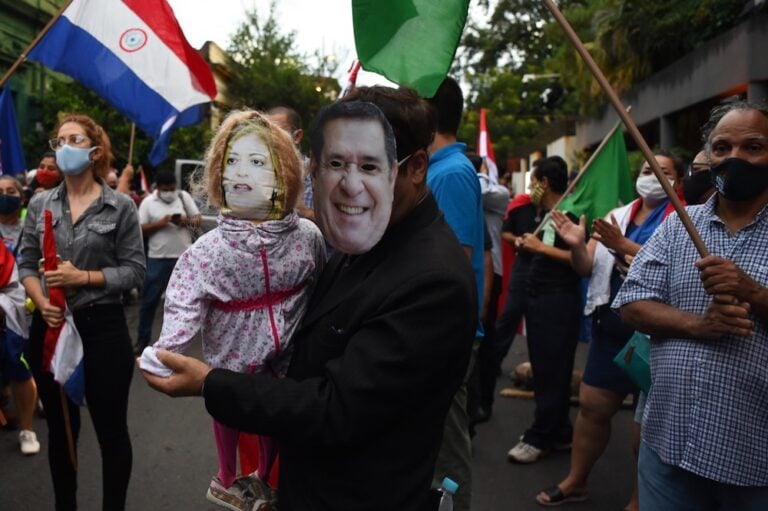(AMARC/IFEX) – AMARC condemns the closure of various radio stations belonging to the Paraguayan Association of Community Communication (Asociación Paraguaya de Comunicación Comunitaria, COMUNICA), due to the strong pressure brought to bear upon the courts by commercial radio companies. On 10 July 2007, the radio station Chokokue FM, located in the city of Minga Guazú […]
(AMARC/IFEX) – AMARC condemns the closure of various radio stations belonging to the Paraguayan Association of Community Communication (Asociación Paraguaya de Comunicación Comunitaria, COMUNICA), due to the strong pressure brought to bear upon the courts by commercial radio companies.
On 10 July 2007, the radio station Chokokue FM, located in the city of Minga Guazú and run by the Paraguayan Peasant Movement (Movimiento Campesino Paraguayo, MCP), was closed in a violent manner. Community members came to the station’s aid to prevent the first attempted seizure of its equipment. Hours later, however, a contingent of some 50 armed anti-riot police officers arrived to force the community radio station’s closure and confiscate its equipment.
In mid-June, the radio station Tenonde, which belongs to the National Peasant Organisation (Organización Nacional Campesina, ONAC), was closed in response to a complaint by the Commercial Radio Broadcasters’ Association of Caaguazú (Asociación de Radiodifusión Comercial de Caaguazú, ARADELCA). The same organization, which campaigned strongly against the non-renewal of RCTV’s broadcasting license in Venezuela, describing it as an “attack on freedom of expression”, also brought about, through the local courts, the 7 July closure of the radio station Radio Carayao in the city of the same name.
Caaguazú department, where these closures took place, is the political riding of the country’s president, Nicanor Duarte Frutos. According to local sources, the president owns more than one commercial radio station in the department, run by “name-lenders” or “front men” – people paid to be the official, public owners of a business actually owned by someone else, to conceal the identity of the real owner.
AMARC is concerned that the courts are being used to undermine freedom of expression, as commercial radio interests pressure for the closure of community stations that are in the process of being formally recognized by the official telecommunications body, the National Telecommunications Commission (Comisión Nacional de Telecomunicaciones, CONATEL).
National and international organizations have criticised the process by which formal recognition of community media outlets is being granted. The allocation of frequencies to community radio stations is discretional, so there is no guarantee of equitable access and there is the risk that frequencies will be allocated to favor the president’s business friends and political allies.
In December 2006, 49 “community” radio stations won official approval to operate; none of the 37 stations belonging to COMUNICA which had also applied for licenses were among them, even though some of these have been functioning in their communities for as long as 13 years. Meanwhile, investigators have found that 80 percent of the stations that have received official recognition are affiliated to the ruling party, or religious groups, or business interests that use the stations for profit.
COMUNICA is a network of over 50 radio stations affiliated with AMARC, run by peasant, worker, cultural, youth, and neighbourhood organizations. Among the goals of the network is the democratization of media and the defence of freedom of expression in Paraguay.


